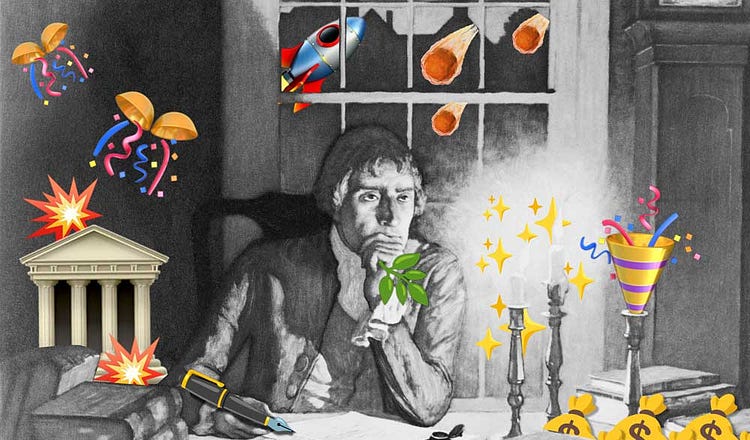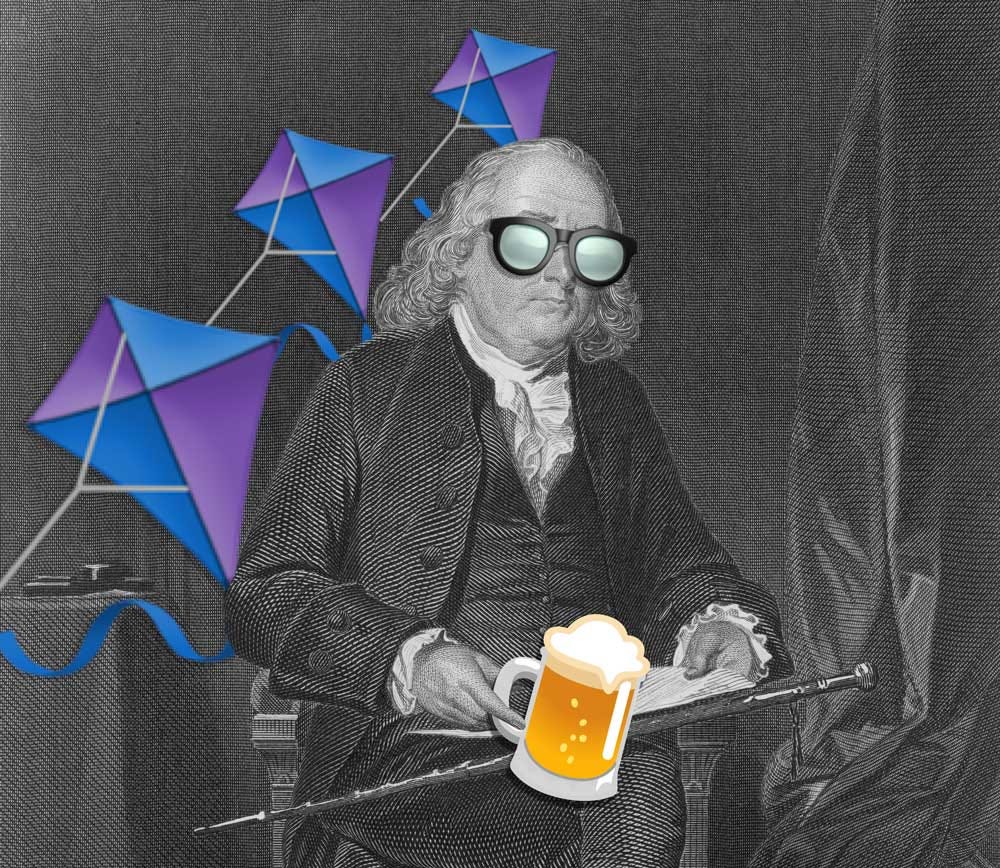
When I grew up in southwest Ohio in the 1990s, my immigrant parents always reminded me: if you’re going to stand out, you might as well be outstanding. They said it with a thick Indian accent, but I view their advice as quintessentially American.
It’s what distinguished America’s Founding Fathers. The Old World was one that aspired to a certain form of normalcy—one where people stayed in their respective lanes. An inventor was an inventor, a lord was a lord, a philosopher was a philosopher. Much of this was determined at birth.
But our Founders were different. They didn’t believe in those boundaries.
Benjamin Franklin was not only a co-author of the Declaration of Independence but also founded hospitals and universities; dabbled in medicine; created a musical instrument that went on to be used by Mozart and Beethoven; designed the lightning rod, bifocal spectacles, and the Franklin stove. Robert Livingston helped design the steamship as a side project while serving as an ambassador to France. Roger Sherman was a self-taught attorney who never had any formal education. Thomas Jefferson was fluent in four languages, wrote nineteen thousand letters by hand, and invented prototypes of the polygraph and the swivel chair. Oh, and he designed the architecture of the Virginia State Capitol building.
They were weird. Often the ones who said the weirdest things adopted some of the weirdest viewpoints by the standards of their day. John Adams was an abolitionist during an age when slavery was the norm the world over. He was also a self-taught scholar of Hindu scripture and wrote letters to Thomas Jefferson about the Bhagavad Gita.
People like Adams made our nation a magnet for minds that were as courageous and bizarre as their own. One of the most important chemists of the eighteenth century was Joseph Priestley, a British guy who had unusual religious beliefs that defied mainstream Anglican thought. It soon became unsafe for him to remain in England, so he moved to Pennsylvania, where he was welcomed by Benjamin Franklin and Thomas Jefferson. It may have been the first notable example of a brilliant scientist moving to America precisely because we’re a free society, a tradition that so many others, including my own mother and father, followed centuries later. Priestley didn’t come to America because we had great universities or funding for his research. He came here because we had freedom. The freedom to be weird.

Against that backdrop, the recent Democrat strategy of labeling their political opponents as “weird” is notable. Over the past week, prominent Democrats appeared on cable television to use the word “weird” hundreds of times to describe President Donald Trump and, especially, the GOP vice presidential candidate, J.D. Vance. This wasn’t some kind of grassroots wave but appeared more like a well-coordinated political strategy to define Republicans, executed by the party’s top brass including Kamala Harris, Chuck Schumer, Pete Buttigieg, and countless Democrat governors vying to be Harris’s pick as veep.
But alleging “weirdness” is a troubling form of political argument. It’s anti-American, on at least two levels.


